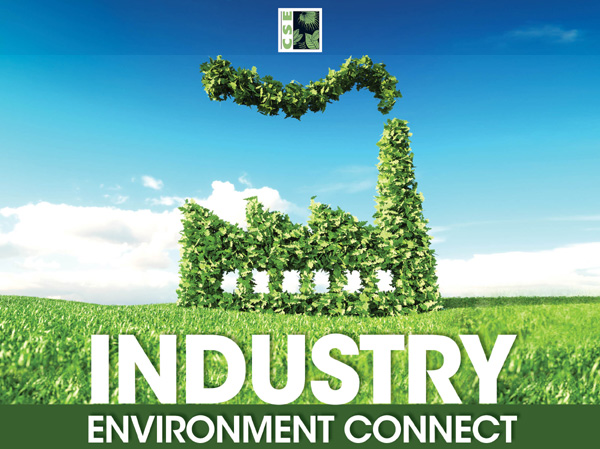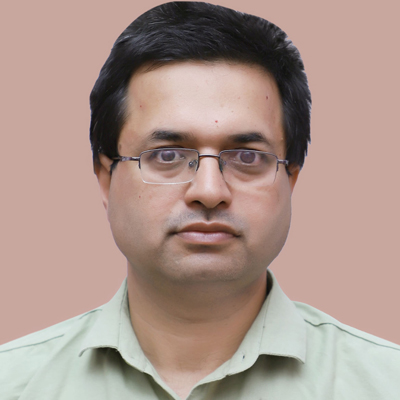 |
| March, 2024 |
 |
| |
 |
|
| Editor's Note |
| |
|
|
 |
Dear Readers,
I hope you had a good beginning to the year 2024. In the first issue of this year, I would like to share with you our stories, our achievements and our learnings from a fair share of setbacks in the year that went by.
It was a mixed year when we look into what we have been able to achieveand what we could have accomplished last year. CSE worked with hard to abate sectors. Starting with iron & steel and cement sectors, we have received a lot of positive response from policy makers and big players.
CSE worked at state level on mitigating industrial pollution. We have received good success with Central Pollution Control Board (CPCB) coming up with guidelines on common boiler and controlling fugitive emission from stone crushers. Rajasthan State Pollution Control Board has also taken measures to improve the foundry sector in the state in terms of energy efficiency and reducing greenhouse gas emissions. The disappointing factor during the last year was again the lack of efforts/ initiatives of Ministry of Power, Central Electricity Authority and Ministry of Environment, Forest and Climate Change in pushing thermal power plant meet either emission standard or usage of biomass as a fuel. Thermal power plant continues to defy the emission norms despite huge resentment by people and advocacy organisation in the country.
We are also happy to share we have signed a partnership with Directorate of Environment, Government of Uttar Pradesh on improving the performance of metal industry in three districts of the state. This is the result of our work for the foundry sector in Vishwakarma Industrial Area in Jaipur& in Kolhapur cluster, Maharashtra. The intervention not only will reduce the greenhouse gas emission but also intends to reduce air pollution from the sector. We have also been engaged by the UP government on brainstorming synergic strategies for control of Air Pollution and GHG emissions in the Indo- Gangetic Plain (IGP) and are hopeful to continue our work on ground in the state.
In Rajasthan too, we were able to assess the type and quantity of non-hazardous industrial waste generated in VKIA in collaboration with the Rajasthan State Pollution Control Board. We are hopeful that this year we will move towards developing waste management facilities across industrial areas in Rajasthan and mainstream waste circularity in the state.
I would like to particularly share with you our concern regarding fugitive dust emissions from stone crushers. CSE had highlighted in its report earlier how these units are operating bypassing the environmental guidelines. Recently, the government has proposed to bring stone-crushers under the ‘green category’. This is of particular concern for us as these industries are a major source of local dust and noise pollution. Any free-hand in its operation is only going to increase the disputes between these units and the local inhabitants along the vicinity of the crushers, while adding to air pollution in the region.
Where there have been setbacks, there is hope too. Our latest work on emission norms compliance by coal-based thermal power plants in Delhi NCR was discussed in the parliament session in connection with Delhi’s air pollution problem. Despite several rounds of pushing back the deadlines for compliance with the emission norms of 2015, we hope this would not be the case this year.
In relation to Delhi air pollution woes, measures such as use of common boilers in industrial clusters, implementation of biomass co-firing in coal-fired thermal power plants, and development of performance standard and certification system for Continuous Emission Monitoring System—which have been advocated by CSE for several years – are now part of the action plan by the Commission for Air Quality Management (CAQM) for combating air pollution in the Delhi NCR and adjoining areas.
On the decarbonization front, at COP28 held in Dubai CSE was invited to present its views on ‘Just Industry Transition Partnerships’ at a UNFCCC side event organised by Wuppertal Institute, Lund University, Agora Industry and Kassel University.
Dear readers,that was the wrap-up of our journey last year. With new hopes, aspirations and your support we will continue to fight for our right for a clean environment.
We have included information on CSE’s training programmes for your kind perusal. I would encourage you to participate in our training programmes and invite others too.
I hope you will enjoy reading this issue of the newsletter and send your valuable feedback to us.
|
 |
| |
 |
 |
| |
Nivit Kumar Yadav
Director, Industrial Pollution Unit
|
| |
|
 |
|
|
| Industrial Decarbonization and Energy Discussions@COP28 |
| |
|
|
| |
|
|
|
| |
|
|
| |
|
|
| |
|
|
| |
|
|
| |
|
|
| |
| |
|
|
| |
|
|
|
| Pollution from Coal-Fired Thermal Power Plants |
| |
|
|
| |
|
|
| |
|
|
| |
|
|
| |
|
|
| |
|
|
| |
|
|
| |
|
|
 |
|
Circularity in Industries |
| |
|
|
| |
|
|
| |
|
|
| |
|
|
 |
|
Environmental Governance |
| |
|
|
| |
|
|
| |
|
Growing Indian Carbon Market
|
| |
|
|
| |
|
|
| |
|
|
| |
|
|
| |
| Reports |
| |
|
|
| |
|
|
| |
|
|
| |
| Upcoming Training Programmes |
| |
|
|
 |
| |
|
|
| |
To share your feedback, please contact |
|
| |
|
|
| |
|
|
 |